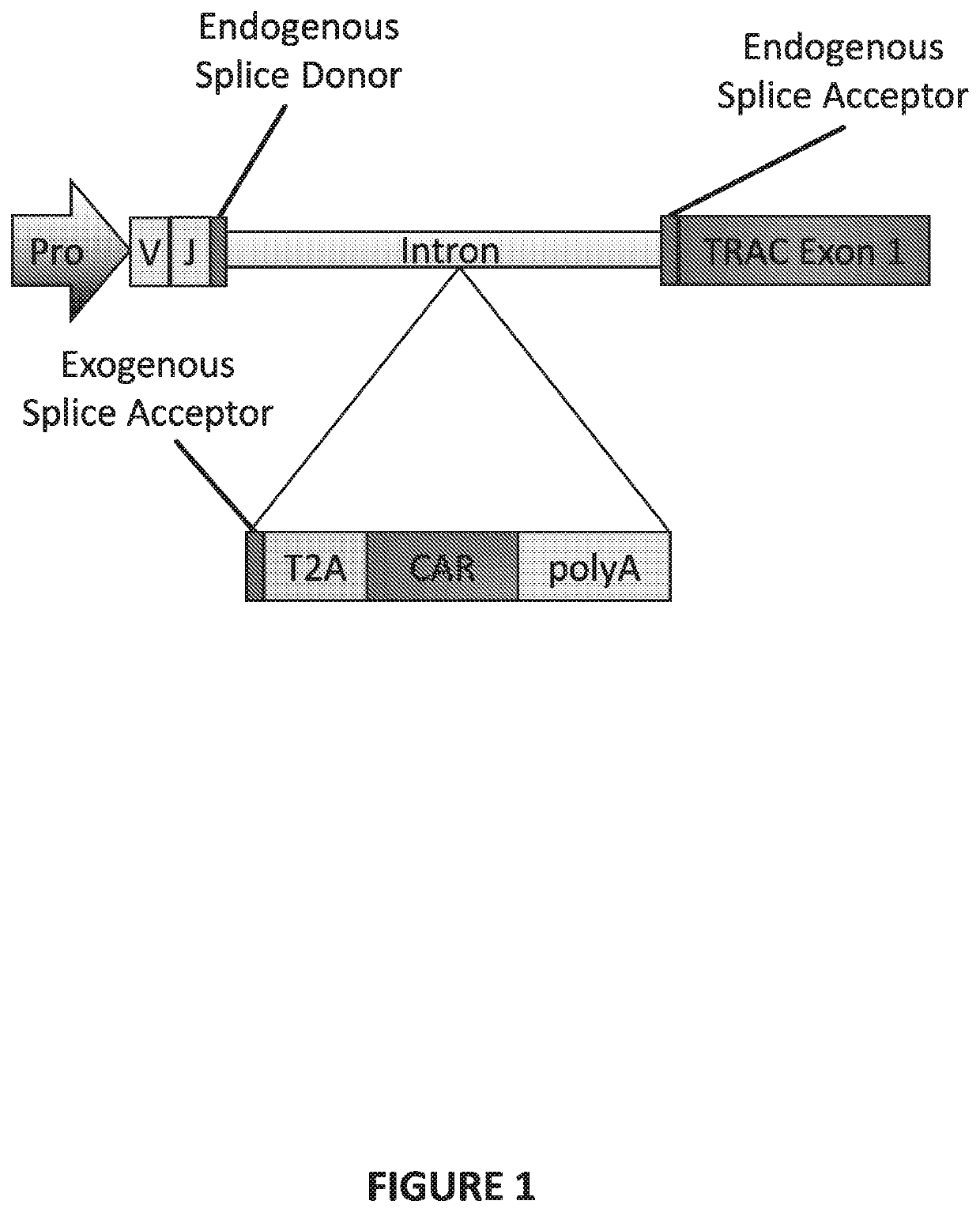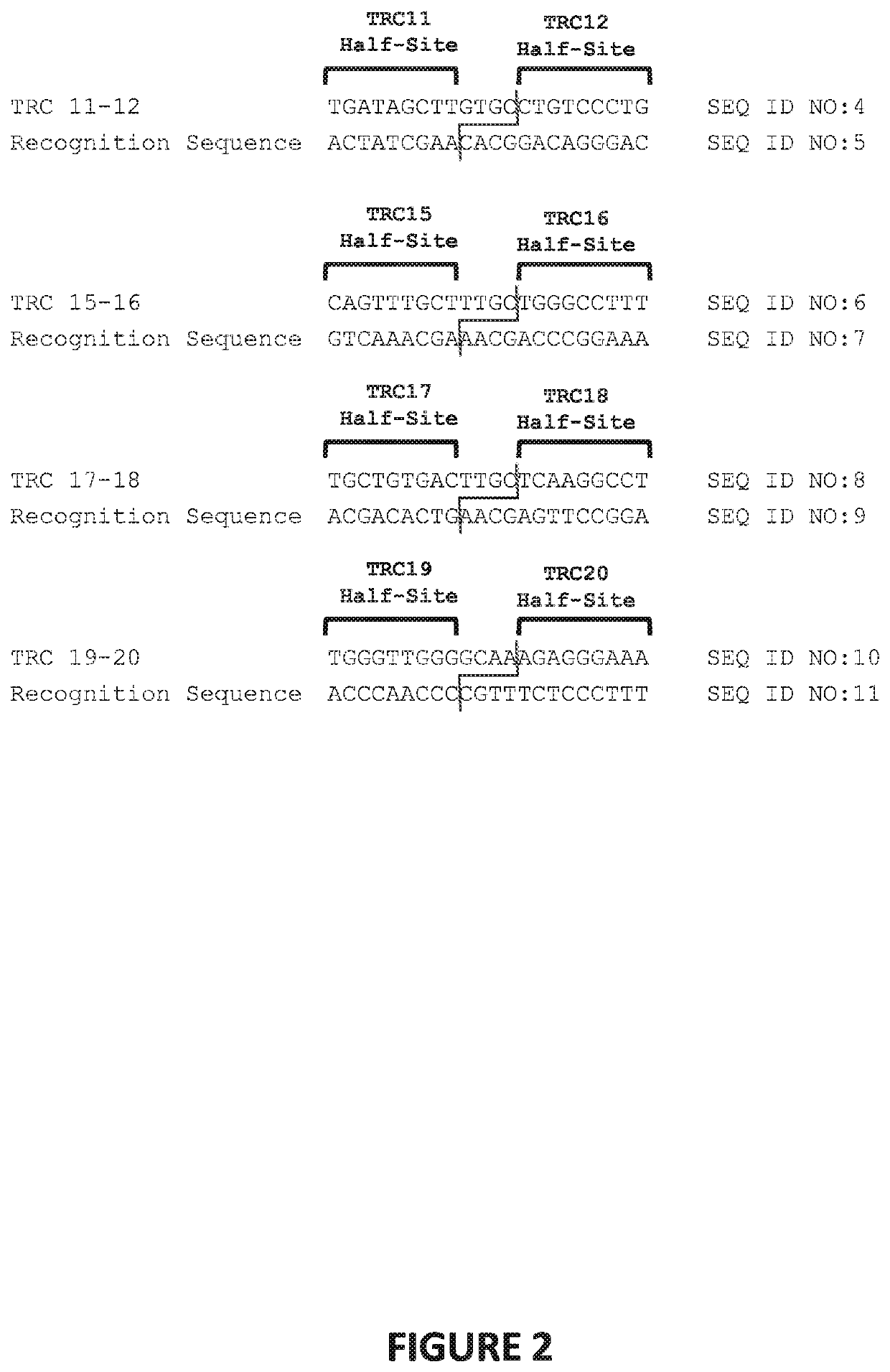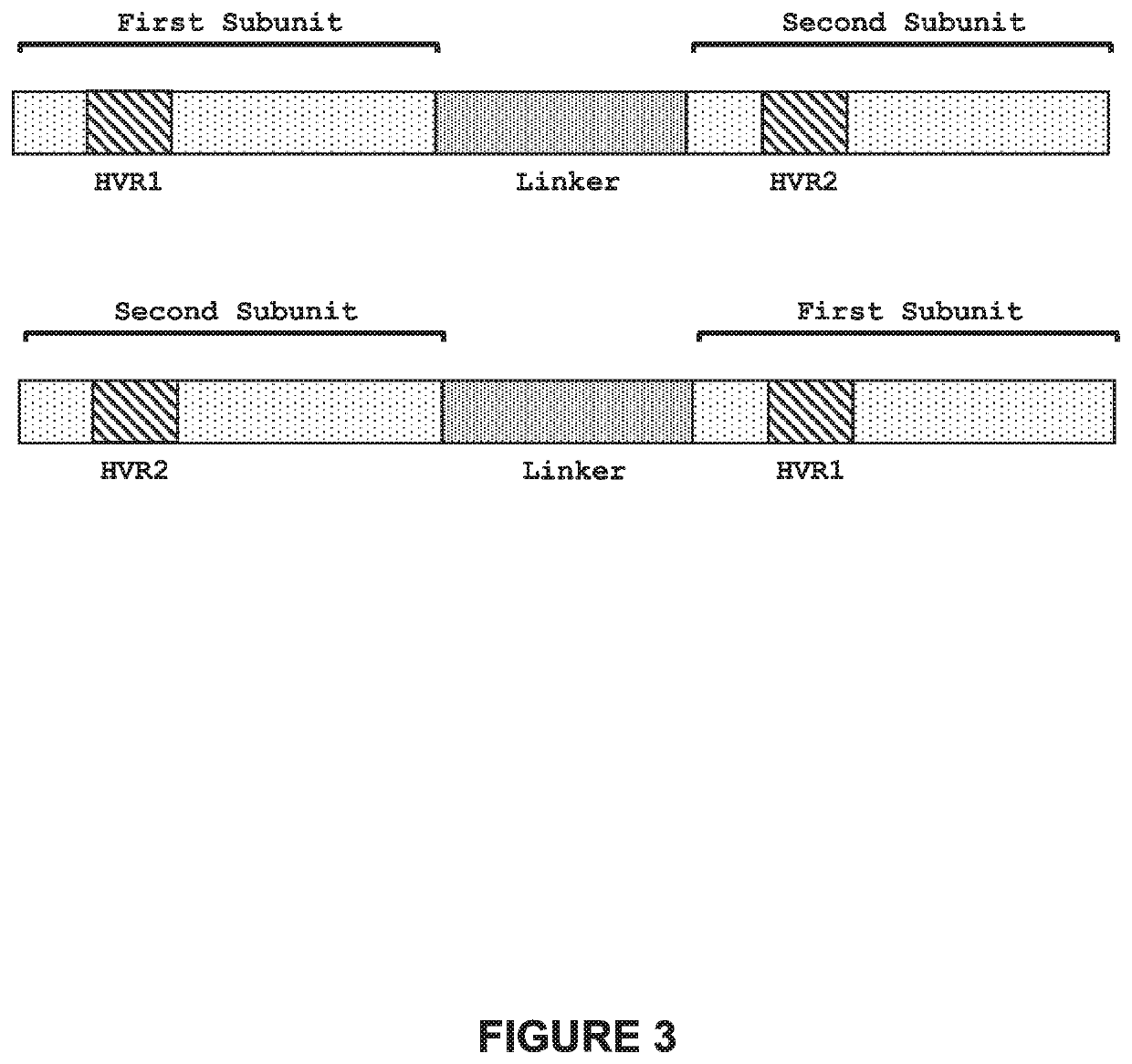Genetically-modified T cells comprising a modified intron in the T cell receptor alpha gene
a technology of t cell receptor and intron, which is applied in the field of gene-modified t cells comprising a modified intron in the t cell receptor alpha gene, can solve the problems of unmodified endogenous splice donor site and endogenous splice acceptor site flanking the intron, and/or remain functional in the cell, and achieve the effect of reducing cell surface expression of an endogenous t cell receptor
- Summary
- Abstract
- Description
- Claims
- Application Information
AI Technical Summary
Benefits of technology
Problems solved by technology
Method used
Image
Examples
example 1
Characterization of Meganucleases that Recognize and Cleave Recognition Sequences in the Targeted 5′ Intron of the T Cell Receptor Alpha Gene
1. Meganucleases that Recognize and Cleave the TRC 11-12 Recognition Sequence
[0365]Engineered meganucleases (SEQ ID NOs: 12-15), collectively referred to herein as “TRC 11-12 meganucleases,” were engineered to recognize and cleave the TRC 11-12 recognition sequence (SEQ ID NO: 4), which is present in the targeted 5′ intron of the human T cell receptor alpha gene. Each TRC 11-12 recombinant meganuclease comprises an N-terminal nuclear-localization signal derived from SV40, a first meganuclease subunit, a linker sequence, and a second meganuclease subunit. A first subunit in each TRC 11-12 meganuclease binds to the TRC12 recognition half-site of SEQ ID NO: 4, while a second subunit binds to the TRC11 recognition half-site (see, FIG. 2).
[0366]The TRC12-binding subunits and TRC11-binding subunits each comprise a 56 base pair hypervariable region, r...
example 2
Generation of Indels at TRC Recognition Sequences in Human T Cells
1. Background
[0378]This study demonstrated that engineered nucleases encompassed by the invention could cleave their respective recognition sequences in human T cells. Human CD3+ T cells were isolated from PBMCs by magnetic separation and activated for 72 hours using antibodies against CD3 and CD28. le6 activated human T cells were electroporated with 2e6 copies of a given TRC 11-12 or TRC 15-16 meganuclease mRNA per cell using a Lonza 4D-Nucleofector according to the manufacturer's instructions. At 72 hours post-transfection, genomic DNA (gDNA) was harvested from cells and a T7 endonuclease I (T7E) assay was performed to estimate genetic modification at the endogenous TRC 11-12 or TRC 15-16 recognition sequence (FIG. 7). In the T7E assay, the TRC 11-12 or TRC 15-6 locus is amplified by PCR using primers that flank the two recognition sequences. If there are indels (random insertions or deletions) within the target lo...
example 3
Effect of TRC Recognition Sequence Cleavage on T Cell Receptor Expression
1. Background
[0381]The purpose of these experiments was to demonstrate whether cleavage of a TRC recognition sequence within the targeted 5′ intron of the T cell receptor alpha gene, and subsequent repair by NHEJ, would affect expression of the endogenous T cell receptor.
[0382]Human T cells were magnetically enriched using a CD3 positive selection kit and a Robo-Sep automated magnetic separator (both from Stem Cell Technologies). T cells were enriched from an apheresis sample obtained from a compensated, healthy human volunteer. T cells were stimulated for 3 days using T cell Activator (antiCD3 / anti / CD28) Dynabeads (LifeTechnologies) at a 1:1 cell:bead ratio in the presence of 10 ng / ml if IL-2. After 3 days, T cells were harvested, Dynabeads were removed using the DynaMag magnet (Life Technologies), and 1 μg of the indicated meganuclease RNA was introduced to T cell samples using the Lonza 4-D nucleofector. Nuc...
PUM
| Property | Measurement | Unit |
|---|---|---|
| time | aaaaa | aaaaa |
| length scale | aaaaa | aaaaa |
| length scale | aaaaa | aaaaa |
Abstract
Description
Claims
Application Information
 Login to View More
Login to View More - R&D
- Intellectual Property
- Life Sciences
- Materials
- Tech Scout
- Unparalleled Data Quality
- Higher Quality Content
- 60% Fewer Hallucinations
Browse by: Latest US Patents, China's latest patents, Technical Efficacy Thesaurus, Application Domain, Technology Topic, Popular Technical Reports.
© 2025 PatSnap. All rights reserved.Legal|Privacy policy|Modern Slavery Act Transparency Statement|Sitemap|About US| Contact US: help@patsnap.com



